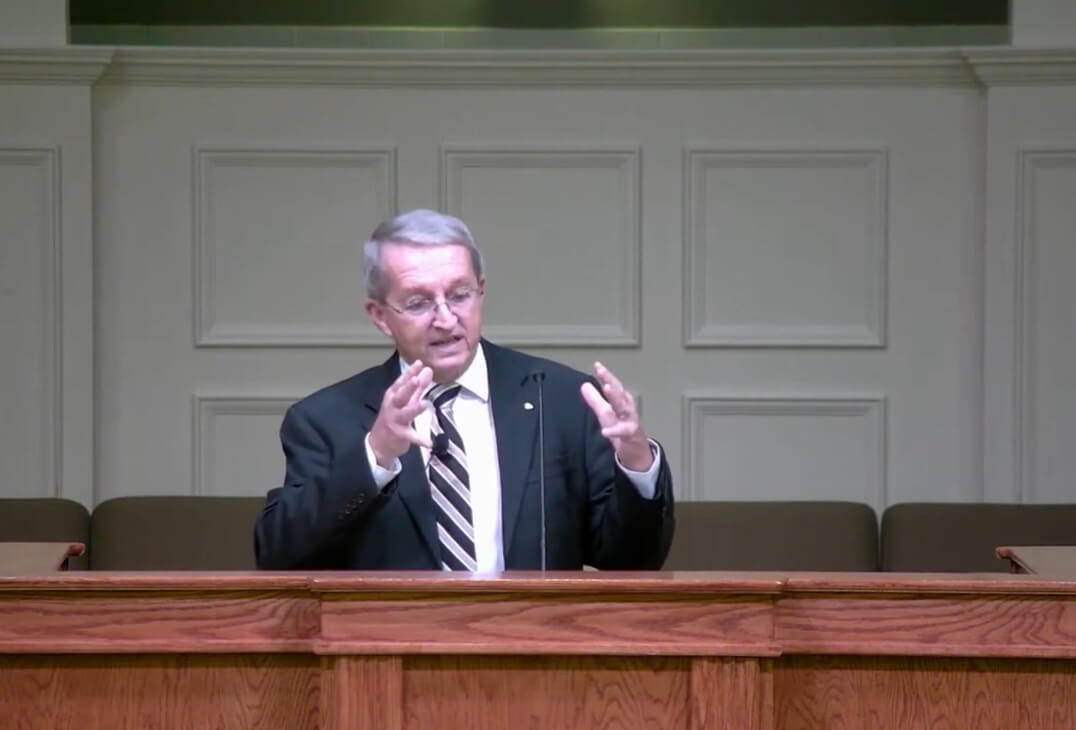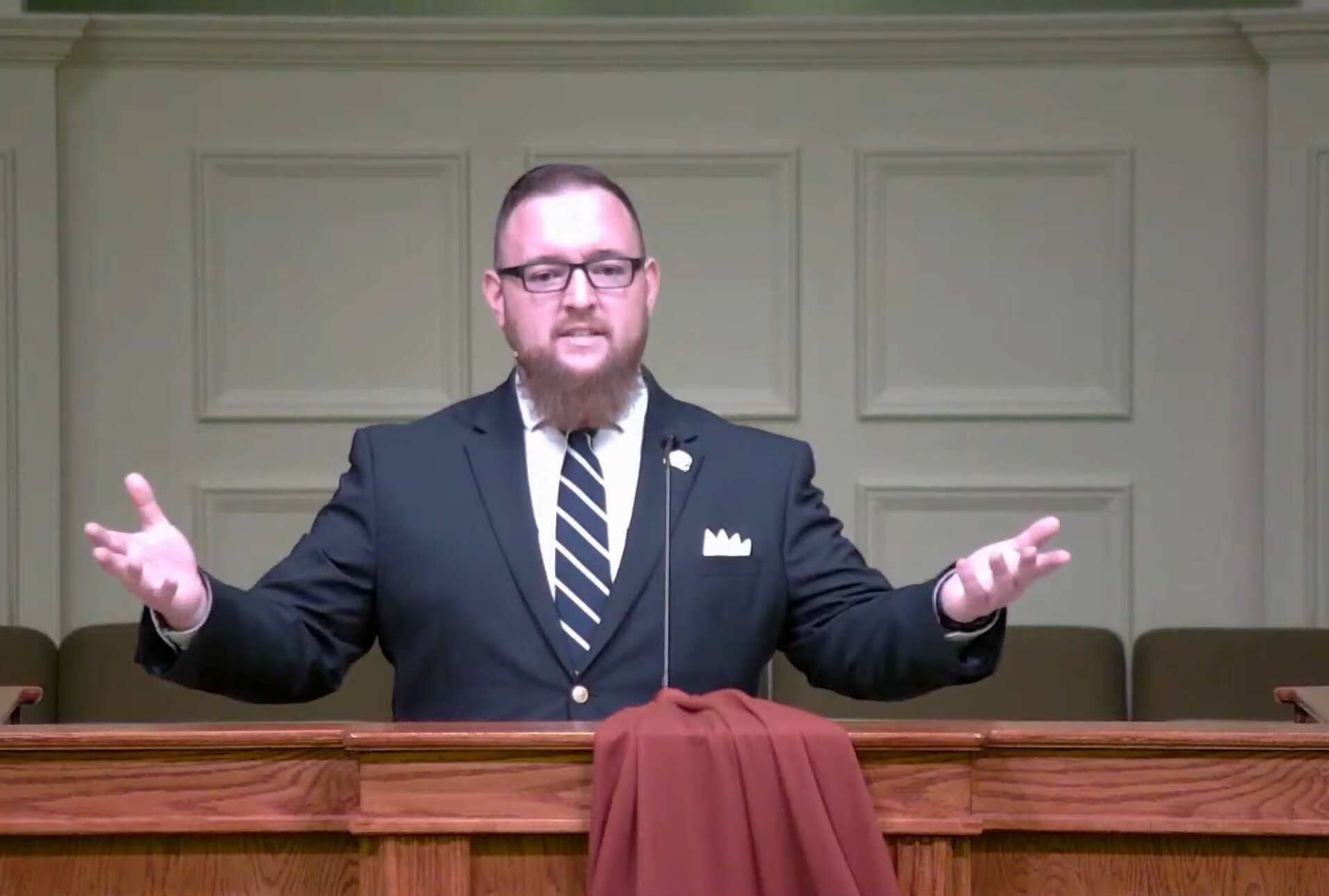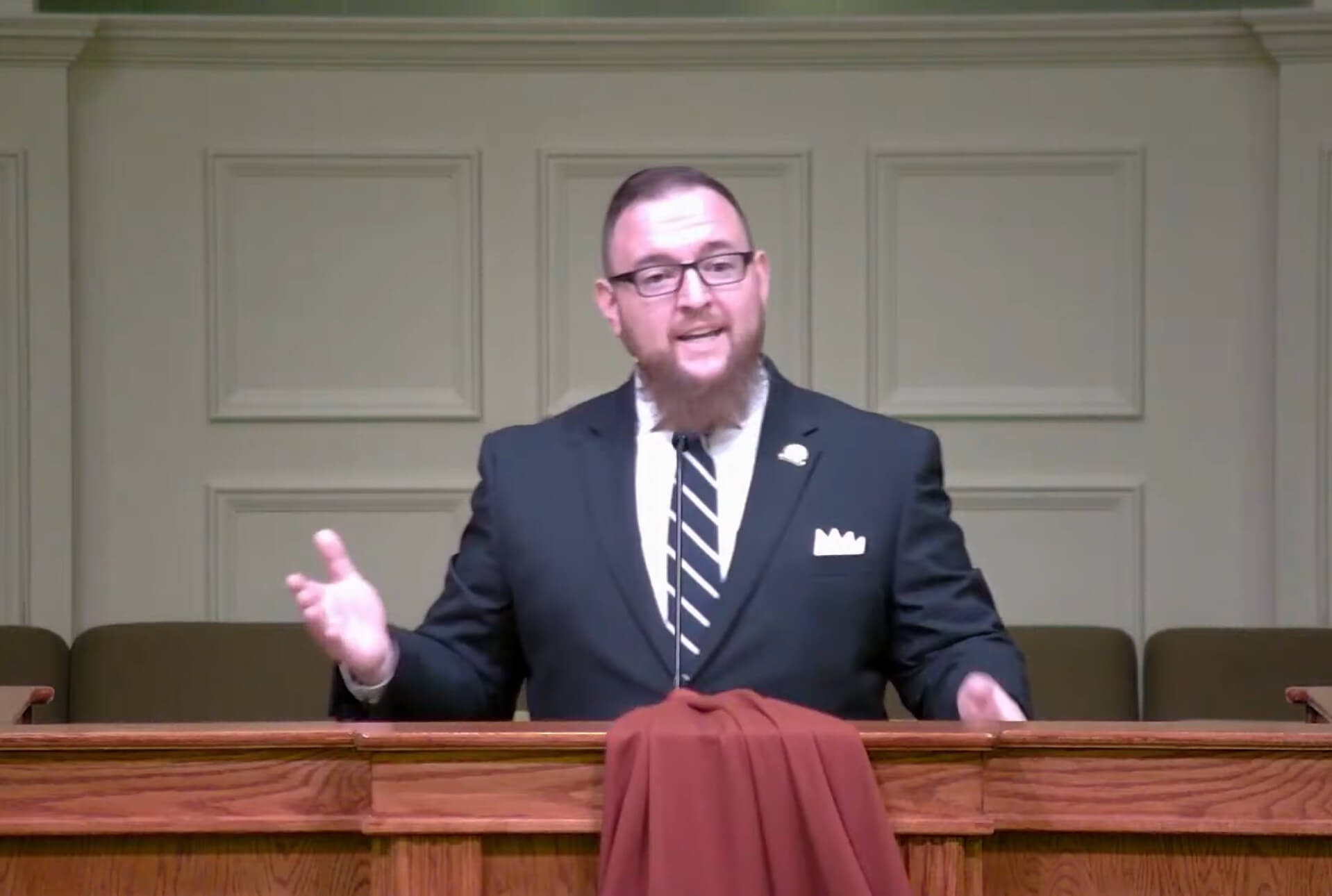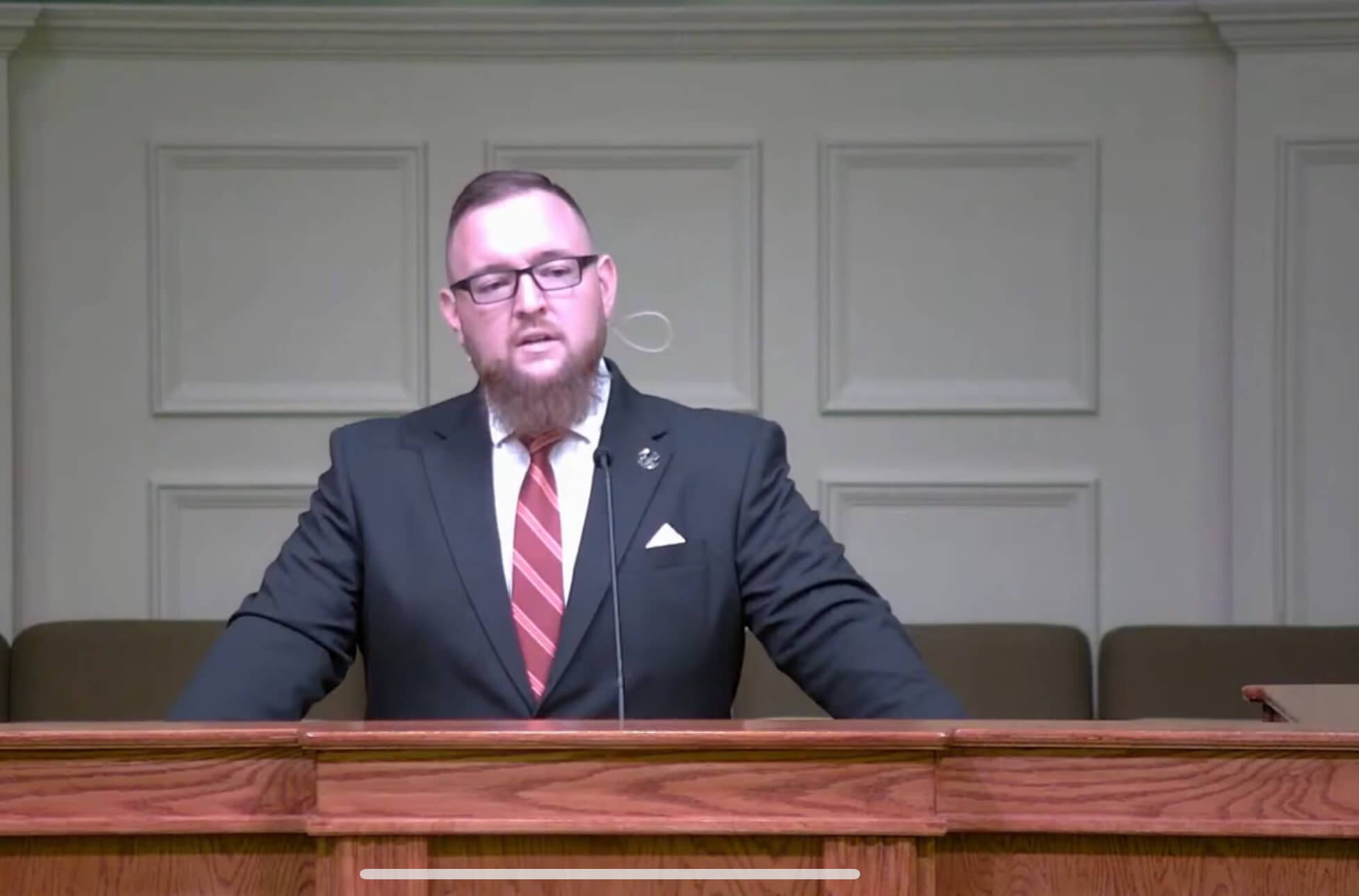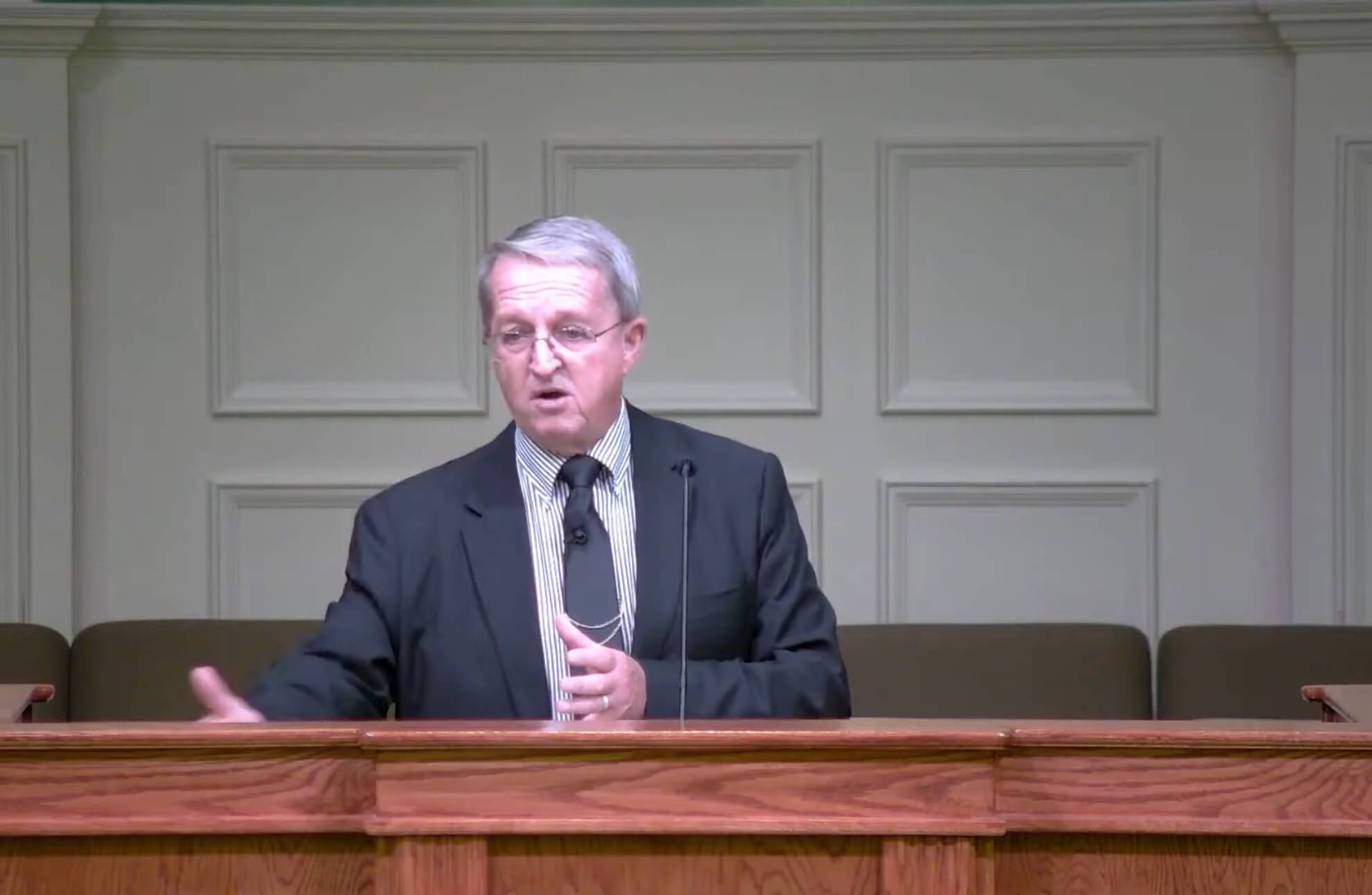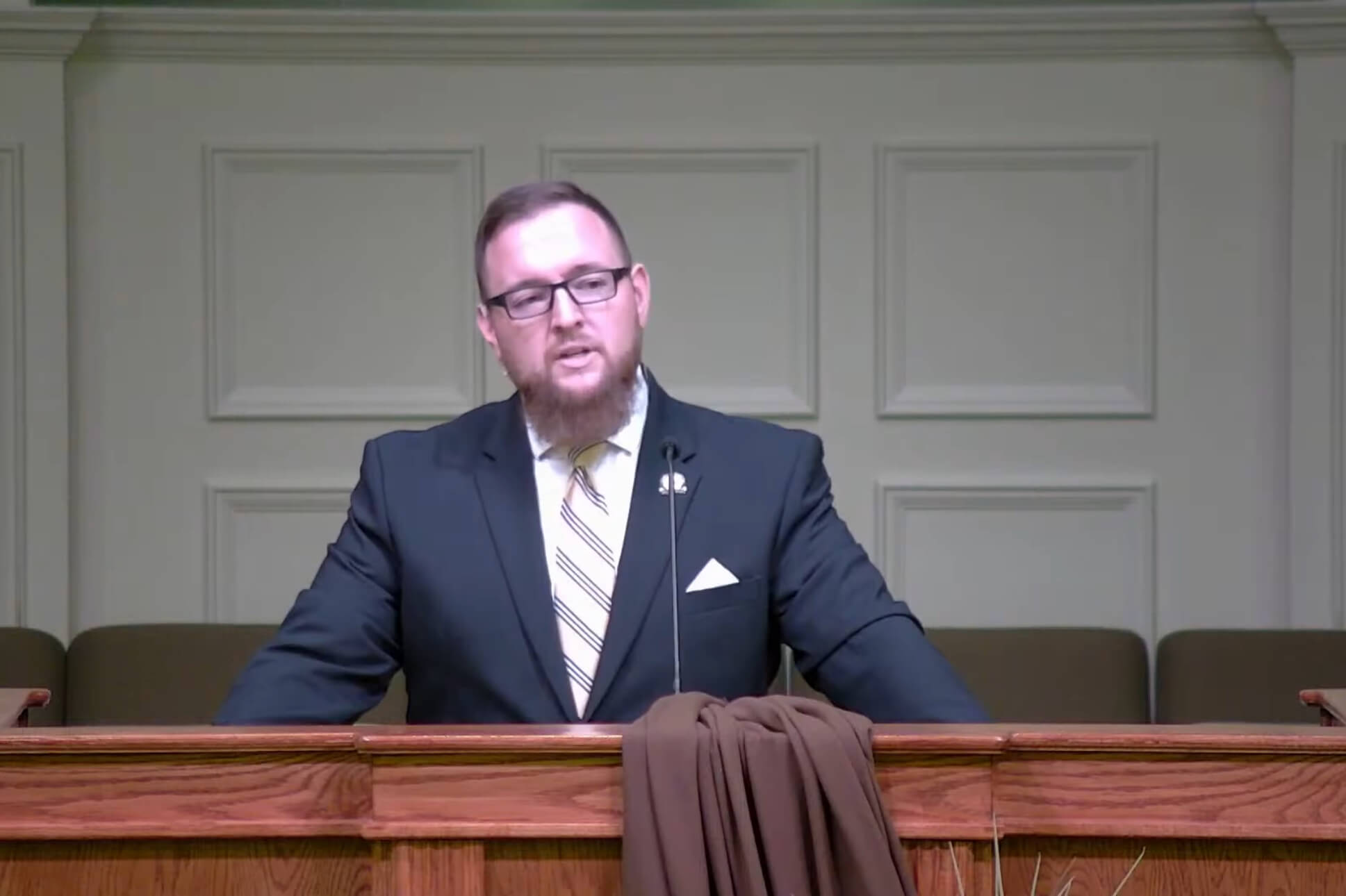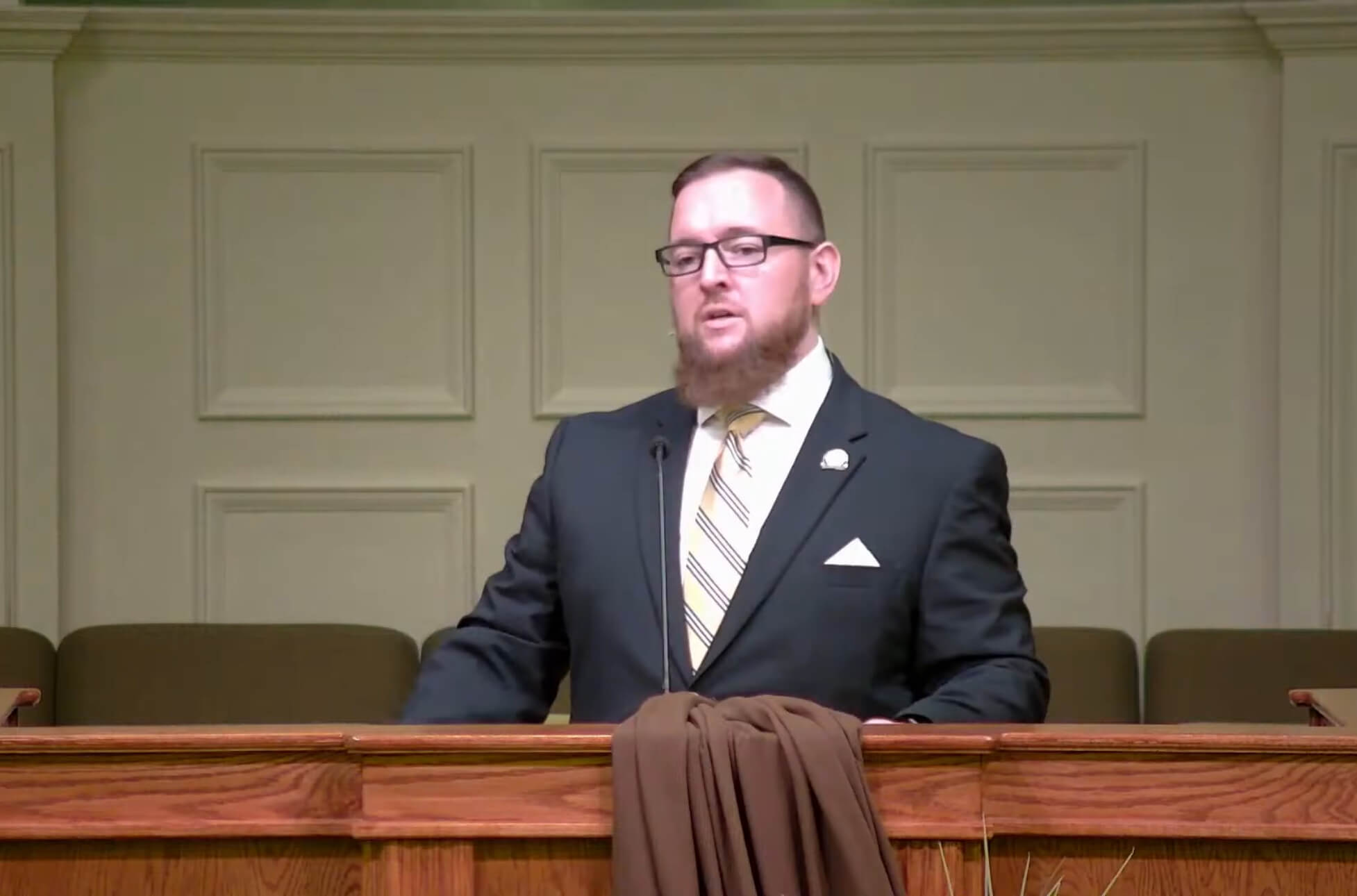Video
“The Mount of Olives Discourse”
| Matthew 24-25 | Pastor Richard C. Piatt II
03/03/2024
Audio
Transcript
Transcript
Well, this morning, what I want to do is discuss something that is very difficult. We’re entering into an area of of the gospel according to Matthew that is very difficult. And it’s one that I’ve kind of been a little bit, I don’t want to say reluctant, but just cautiously excited, might be one way of putting it, of whenever I would get here. It’s Matthew 24. because there’s a lot of controversy that’s in the midst of it. And it deals with the secret knowledge of the future. Now people wish that they had that. And just that basic thought of secret knowledge of the future is intriguing to so many people.
Some are willing to even go to fortune tellers and things like that to get some of that secret knowledge of the future. We understand and know that the Bible condemns that for the nation of Israel, that was something that was not to be done. But if you could know the future concerning money, investments, your job, your family, health issues, what is the stock market going to do? That you wish that you could know a little bit of that particular future, the disciples in Matthew chapter 24, were interested about the future.
Jesus had tried to prepare them for the future. He had already, at this particular point in the ministry of Christ, he has already gone through the triumphal entry, he’s in Jerusalem, he’s cleansed the temple. Chapter 23, he laid, the people were there, the Pharisees were close by, And he had already rebuked them, as what you’ve seen, that it is really a scathing rebuke in the midst of all of that, discussing who they were, chapter 23, verses one through 12. And then in verse 13 of chapter 23, he starts that series of the seven woes, and he just lays them low and lays them low and condemning them. And he says, assuredly, I say to you, all these things will come upon this generation. That is, this judgment upon you is going to come. And that was, I think, a passing reference to A.D. 70 and the fall of Jerusalem, the destruction of the temple. But then he concludes Chapter 23, and then, of course, that’s right before Chapter 24, where he then has the lament.
The Bible knows of the prophets lamenting, and we’ve got a lament, a prophet of the Old Testament in Jeremiah. Of course, then we still have a whole book of the Bible, Lamentations. And there was a lament, and a woeful oracle of sorrow is really what a lament is. And Jesus does that, but yet he doesn’t lower the judgment of it all because he says, Oh, Jerusalem, Jerusalem, the one who kills the prophets and stones those who were sent to her. How often I would have gathered your children together as a hen gathers her chicks. under her wings, but you were not willing. See, that’s that word, behold, your house is left to you desolate. Now that’s prophetic. It’s a lament. And I think it is expanded upon in chapter 24. Actually, at least through 24, the first 14 verses, and And so he talks about the desolation of Jerusalem. For I say to you that you shall see me no more.
Now, they would see him physically. He’s gonna be dead in about four days in Jerusalem at the crucifixion and the mockery and that, but he says, you’re not gonna see me in any new way until, and I made mention of last Sunday night, how important that word is, until. They would see him again. They’ll see him in a different way. until you say, blessed is he who comes in the name of the Lord. And that would be at the second coming, when the Jew will recognize Christ’s coming as, I talked about the largest oops of all time. Oops, he is him. He was the Messiah. Oops, we were wrong and Jesus was right and it won’t they will not when they see him and the shackles and the scales will be removed and they will see him as he is. They shall look upon him whom they have pierced. But then there’s a shift and when we come to this now, the disciples curiosity is, is just getting to them and, um, he is going, they’re going to ask, they’re going to ask him about some things concerning prophecy and it’s going to be obscured. It’s going to be a unique, it’s going to be a little bit difficult to understand, but Jesus wanted to give this instruction before the crucifixion.
The Gospel of Matthew has six collections of groups of teaching of the Lord Jesus Christ. His teaching in Matthew chapters five through seven, Sermon on the Mount. And then we have chapter 10, chapter 13, chapter 18, 23 that I made mention of as he pronounces those woes. And then there is the the final all of it discourse. His last group of teaching that he will give to his disciples, and we’re given that instruction here at beginning at verse 24, when we read, then Jesus went out and departed from the temple. And his disciples came up to show him the buildings of the temple. And Jesus said to them, Do you not see or do you not see all these things? Assuredly, I say to you, not one stone shall be left here upon another that shall not be shall not be thrown down. And so he gives them those words and And he said, look at this magnificent temple. And it was. It was Herod’s temple. It was constructed. It was ornate. It was gorgeous. He said it will be destroyed. And we come now to his prophetic utterance that we know is going to take place in about 30 to 40 years at the beginning at around 66 to 70 A.D. when Rome comes and destroys all of that. And there will be this destruction and that temple will be thrown down.
But notice what it says in verse three. Now, as he sat on the Mount of Olives, And this would have been a bit of a, he sat down, but it was an elevated area, so they could look out over Jerusalem. He sat down on the Mount of Olives, and the Camels came to him privately. Now before that was the multitude, it was the group, the last message to Israel. Then he gives his last major blow to the scribes, Pharisee, hypocrites. But now he’s giving, Well, we could call it a message to the household of faith, the message to the disciples. This is a family truth. And they come to him privately saying, tell us when these things will be and what will be the sign of your coming and the end of the age. There really are two questions that are there. What is the sign of your coming and what is the end of the age? And tell us when these things will be. And then he Jesus answered them and said, beginning of verse four, we’ll go into that into that passage. And sometimes this kind of, prophetic utterance and this particular passage has led to an unbelievable amount of interpretation.
If you’ve been in church very long and you know the doctrine of eschatology, which is the doctrine of last things, that there are, and there’s more than just these positions, but these are the main ones. There is the ah millennial position, which means the ah is a negative and it says no millennium. There’s no thousand year reign of Christ that basically Christ is gonna come and we go off into eternity. And I’m gonna simplify these. There’s a lot of interpretation in this.
There is the post-millennial interpretation where the church is going to so sanctify and change and develop the world in the fact that then Christ comes at the end, post meaning after the millennium and the kingdom.
And then there is what is called premillennialism that Christ comes back before the millennium and it is Christ that sets up the kingdom. Now there’s also in eschatology three or well actually four or more different rapture Scenarios, if you want to put it, there is the pre-millennial position means that there is a pre-millennial rapture. That is that the church is raptured out or pre-trib, pre-tribulational rapture. It happens. The church is taken out before the tribulation. Then the seven years, then Christ comes back.
You’ve got the pre-wrath position. that there’s some time in that trib, it doesn’t go bad right away. And that but before in the tribulation, but before the wrath is being poured out as what is stated, like in the Book of Revelation, that there is that pre-wrath rapture.
There is a mid-trib rapture, which is close. I think that those are close. They probably wouldn’t like me saying that, but I think they’re close, that it comes about halfway, about three and a half years in the seven year trib. And then there is a post trib, a rapture, which means that as Christ comes back and the church is taken up to meet him and then we come back together and the kingdom is begun together.
Now, depending upon where you are in all your eschatological studies and what you believe about all of that, this series is not going to be about that. I’m just saying that this passage has given rise to some of those positions And some of them, and it’s just confusing in exactly where some of these different details and items are to be stuck in.
The story is told of a man, a king, I think it was many, many, many years ago, who wanted to know if he should go up to war against against a neighbor. And so they went to a fortune teller and said, should I go? And the fortune teller said, the war will bring forth a major country. And so he assumed that it would be his country and he went forth. Oops, it was the other country that really came out on top.
You know, sometimes in prophecy, it can even say what’s gonna happen, but if we come with a preconceived idea, you know, a premill is gonna read this passage very premill, pre-true. An amill is gonna read this passage very amillennially. A postmill will read it from their perspective. And there’s a whole lot that is not in this particular passage, but in other eschatological sections of the Bible.
For example, look at verse 15 of chapter 24. Therefore, when you see the abomination of desolation. So what’s that? It was spoken of by Daniel the prophet standing in the holy place. And so right there you go that you can’t really read this passage without knowing the book of Daniel.
Now we’re going to start off assuming how far I get this morning. My goal is to get to verse 14. So we’re not going to have to do this. And next Sunday we’ll look at the book of Daniel. But notice what it says at the end of verse 15. Whoever reads Let him understand. So even Matthew is saying, you gotta come to this passage with some understanding and some reading, and there may be some confusion in the midst of that. And I’m gonna take, it’s a pre-mill, pre-trib person, but this is not a pre-mill, pre-trib statement that he said, probably the best way to come to this passage is just to go through it and let the words stand as they are. And that goes with our hermeneutic.
Let’s just go through and to see and to pick some things up. Now, what does that look like? Well, let me kind of just give you a bit of some understanding. If you look at verse 8, we’re just going to take a survey here to let you see how to do this. Notice that verse 8 it says and all these are the beginning of sorrows. He doesn’t say this includes everything. And at this particular point he doesn’t even say we’re at the end of it. He said it is the beginning and they will deliver you up tribulation and kill you and so forth. We’ve already looked at verse 15. and that we need understanding.
Look at verse 27, for example. And for as lightning comes from the east and flashes to the west, so also will the coming of the Son of Man be. For wherever the carcass is, the eagles will be gathered together immediately after the tribulation of those days. Now, let me just pause. One of the questions is gonna be, was all of this fulfilled at 70 AD? Was some of this fulfilled at 70 AD and some of it’s not? And if it’s not, how do we pick and choose what is or what isn’t? You see, this is where some of the interpretive things are becomes a little bit more difficult. Or what if are just because some things were fulfilled before 70 A.D., does that mean that it can’t happen further? Are there things in the passage that we know simply have not? Well, as far as I know, the son of man has not come yet. and this whole thing as the lightning and what’s gonna happen and immediately after the tribulation and the moon and the stars and all of what goes on. That hasn’t happened yet.
Look at verse 34. Assuredly, I say to you, this generation by no means shall pass away till all these things take place. Now that’s usually the killer verse. this generation. So that would seem to say everything at least at this point happened at 70 AD. Well, how did it happen? Where are we in now? But then notice, and this is one of the things whereby there needs to be grace in the midst of all of those various interpretations because notice, everyone believes this. Heaven and earth will pass away, but my words will by no means pass away. In other words, the words of Jesus on the Olivet Discourse, for all the difficulty and for all that they profess to prophesy, it will happen. And it because God is going to keep his word. But even some of this is partly clouded in some obscurity, because then the next verse 36 says, but of that day and of that hour, no one knows, not even the angels of heaven, but my Father only.
Now, that has raised other conversation as far as the deity of Christ and everything, and we don’t, I’m not gonna go off into all of that, but just to say, In the midst of all of this, we are given warnings. This is a difficult passage. So there must be grace as we approach it. But there’s warnings, and you know, no matter what position you take, the application all remains the same. And I’ll go through all of the application at the end of the message. But look at verse 42. Watch therefore, for you do not know what hour your Lord is coming.
Now that’s a pure statement. The imminency of Christ, the idea that it is to create in us a watchfulness, we refer to quorum deo, living before the face of God. You see, what I find, have always thought was kind of interesting, that no matter if you’re an amil, premil, postmil, pre-trib, mid-trib, pre-wrath, post-trib person, the one thing that is true, everyone believes that Jesus is coming again. Praise God. The details we can differ on, but the reality of it all, he’s coming. And we are to live in light of that.
Verse 44, therefore, you also be ready for the son of man is coming at an hour you do not expect. And then it goes on, there’s some things here that have to be future because he talks about just at the last verse 51. And we’ll cut them in two and point him a portion with the hypocrites there shall be weeping and gnashing of teeth. And then there’s a series of parables. and at the very end, verse 31, and the son of man comes in his glory and all the holy angels with him and he will sit on the throne of his glory and all the nations will be gathered before him and he will separate them one from another as a shepherd divides his sheep from the goats and he will set the sheep on his right hand, the goats on the left and the king shall say on his right hand, come you blessed my father, inherit the kingdom remember the kingdom has been the theme of the whole gospel prepared for you for the foundation of the world for I was hungry and he talks about as they ministered to him and then he talks about those that did not minister to him verse 41 he will also say to those on the left hand depart from me you cursed into the everlasting fire prepared for the devil and his angels.
Now, if you want another verse or place to write commentary, you go to the book of Revelation. That’s at the end of the age. We ain’t there yet. He ain’t come yet. And the judgment. And so it has been quite clear. There is this generation issue, same discourse, but there are issues that refer to 70 AD. Clearly, in the same discourse, there are issues that refer to the end, the great white throne judgment being the very end. And then it says, verse 46, the last of the discourse, and these will go away into everlasting punishment, but the righteous into eternal life. So why this kind of twofold look?
Well, it goes back to the very beginning, verse 24, And notice verse three, they came to him and they asked him the question, when will these things be? What will be the sign of your coming? And what is the end of the age? Well, part of the sign, and it doesn’t say that it’s all individual, these things, but the signs are given in chapter 24, verses four through 14. And then he’s gonna talk about the specific destruction of Jerusalem in verses 15 and through verse 22. So let’s come now and take just a very, very quick look at this passage of scripture. I’ve already talked a little bit about the setting, but I want to have three initial considerations on this Olivet Discourse. And to help us in the midst of that, I think it would be good for us to look at the parallel passage because the gospel of Luke is a little bit more clear and adds some things to all of this. So if you would, take your copy of God’s word.
We did not have the scripture reading and I would have read this one or had this one read. Let’s go to the gospel of Luke. and go to chapter 21, Luke 21. And I’m going to pick it up at verse five. Luke 21, verse five, and you’ll see that this is the parallel passage here in just a real quick moment. Then, as some spoke of the temple, how it was adorned with beautiful stones and donatations, he said, these things which you see, and he paused, the day will come in which not one stone shall be left upon another that shall be not thrown down. So they asked him saying, teacher, but when will these things be and what will be And what sign will there be when these things are about to take place? And Jesus said, Take heed that you do not be deceived. And he goes through a list that’s going to be very much parallel to where we’re going to be. These are some of the signs before it happens. For many will come in my name saying, I am he and the time draw near. Therefore, do not go after them. But when you hear of wars and commotions, do not be terrified for these things must come to pass first. But the end will not come immediately. Then he said to them, Nation will rise against nation, kingdom against kingdom, and there will be great earthquakes in various places and famines and pestilence. There will be fearful sights and great signs from heaven. But before all these things, they will lay their hands on you and persecute you, delivering you up into the synagogues and prisons. You will be brought before kings and rulers for my namesake, but it will turn out for you as an occasion for testimony. Therefore, settle it in your hearts not to mediate beforehand on what you will answer, for I will give you a mouth of wisdom which all your adversaries will not be able to contradict or resist. You will be betrayed even by parents and brothers, relatives and friends. They will put some of you to death and you will be hated by all by all for my namesake. But not a hair of your head shall be lost by your patients possess your souls. But when you see Jerusalem surrounded.
So this is still 70 A.D. because Jerusalem is there. But when you see Jerusalem surrounded by armies, Then know that it’s desolation is near. Remember there that is. Then let those who are in Judea flee to the mountains. Let those who are in the midst of her depart and let not those who are in country entry her. For these are the days of vengeance. And that would be the vengeance that was in Matthew chapter 23. that all these that all things which are written may be fulfilled but woe to those who are pregnant and to those who are nursing babes in those days for there will be great distress in the land and the wrath upon the people and they will fall by the edge of the sword and be led away into the all nations and Jerusalem will be trampled by Gentiles that was Rome that happened until the time of the Gentiles are fulfilled. So one has to determine what’s the time of the Gentiles.
We would, in a sense, be in that now. It’s not fulfilled because we’re still in it. Some of the very characteristics of the second coming are still there. And there will be signs and the sun and moon and some other things that will take place. Very much constructed, just like Matthew chapter 24. So as we read this, and this is a message that goes to the disciples and their questions, they give the question of when and what. What will be the signs and when will this be coming? Jesus’ answer is what we want to look at now. The signs that are not signs, as what one man said, if you look at verse. Well, we’ll just take a look at this and we’ll take a look at it.
So what are the signs or they’re really not signs that were given? If you look at verse eight, all of these are the beginning of sorrows. The term sorrows there is really the Greek word that means birth pangs. Just as a woman has the Braxton Hicks, and that’s what gets the baby ready, for delivery. Hopefully that’s not Braxton Hicks. I’m sorry I just had to say that. You know the Braxton Hicks contractions that that help the baby. They’re not the labor but their precursor. And that’s exactly what he says all these things to the beginning of the sorrows. What are those things. What are made mention of. Well It starts up a verse for he answered and said to them, Take heed that no one deceive you, for many will come in my name saying, I am the Christ and will deceive many. And you will hear of wars and rumors of wars. See that you are not troubled for all these things must come to pass. But the end is not yet. And so these are the signs that aren’t signs. There’s going to be false messiahs. There’s going to be other people to come. Other people that say, you need to follow us on all those things that has all taken place. There’s wars and rumors of wars that has taken place. There will be famines for nation will rise up against nation and against kingdom. And there will be famines, pestilence, earthquakes in various places. But all these things. Now, those things took place. They’re still taking place.
Now, just because they took place and Jerusalem fell doesn’t mean that they still can’t take place because they have. And these are, but this is just the beginning. Those are signs that are really are not full signs. But he goes on and says, there will be apostasy. There will be false prophets. Then they will deliver you up to tribulation and kill you. That took place even in the book of Acts. and throughout church history. You will be hated among all nations for my namesake. It’s still being done. And they will be offended and they will betray one another and will hate one another. Then many false prophets will rise up and deceive many. Wow, church history, still going on. And because lawlessness will abound, The love of many will grow cold. That deals with persistence, perseverance. But he who endures to the end shall be saved. And this gospel of the kingdom will be preached in all the world as a witness to all the nations. And then the end will come.
Now, if this is stated at, say, 33 A.D., and if The Israel, Jerusalem falls in 30, 35 years, give or take a little bit. The gospel hadn’t been preached throughout all the world yet. He says, then the end will come. But it was being preached. And then it goes on and talks about the destruction of the desolation spoken by Daniel. And we’ll get to that next week. But all of these things have taken place. Then the destruction of Jerusalem. But the fact that these words must stand. You want to know what the guarantee is? That Jesus is coming again. Israel was cut off. Paul was going to use that in Romans chapter 11. They were cut off. We are grafted in and being grafted in. And we know that it happened because Jerusalem fell. and the signs continue. And Jesus is coming and he’s gonna get into those details in just a little bit. And so by way of just some quick application to the first 14 verses is number one, the literalness of prophecy. Jesus said it would happen and it did. And God seems to be in the business of fulfilling prophetic utterance literally. And that’s something that’s got to guide us in our hermeneutic.
Secondly, that the word cannot be broken. One verse that in verse 35, when it says there, but my words will by no means pass away. It cannot be broken. Jesus is coming. It’s unknown, but there’s always this idea that as long as the signs continue and precursor, The Braxton Hicks and everything, but you know what? There’s a time when a pregnant woman’s got, oops, this is it. Baby is coming. We have wars and rumors of wars. Right now, Iran supposedly has nukes. I don’t know that that’s true. It could be. It’s a rumor. There’s rumors of wars and all kinds of things. It could happen. It could happen at any time. that it is imminent to be ready to live like it. And by the way, this is one reason why this is a good precursor to the table. Do this for how long? In remembrance of me until he come. We are to flee the wrath to come. It’ll talk about that. That’s more in later on, but it’ll talk about that. Pray that it doesn’t happen in a certain time of the year. Pray that it doesn’t happen when you’re with Pray that this because it’s going to happen when you least expect it. Live according to Coram Deo: before the face of God. Jesus is coming. At any moment. Are you ready? That would be the takeaway quickly from those first 14 verses.
Let’s pray. Our father in heaven. How we are thankful. that Jesus took time out, literally hours before the beginning of the trial of his life and redeeming a people unto himself and knowing that these things would soon be. Father, I pray that we would be found faithful in living with a sense of anticipation that Christ can come at any moment. And the things that he said that would come, they did come, and that Jerusalem did fall, and there were no stones left unturned. The fall of Jerusalem, according to the written account, was devastating. Woe fell upon them. And by the end of chapter 25, we will read, woe will fall upon all outside of Christ. But we come this morning to the table to remember our Savior, who has removed the oracle of woe and has given us an oracle of rejoicing, of enter into eternal life. Father, we praise you this day for the gospel of Jesus Christ. It’s in his name that we pray, amen.
